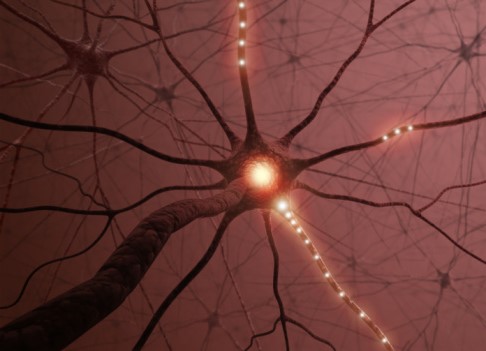 Photo: Getty Images
Photo: Getty Images
Lend an ear to this mouthful. Psychoneuroimmunology -- the short form. Or better, psychoendoneuroimmunology.
I can barely pronounce it. Not sure I can spell it. And why should I care about this psycho-thing?
As it happens, I have good reason to care. For one who's been chronically ill, and has had little success with medicine in general, this tongue-twister represents a new doorway to hope for more complete recovery.
Let's dissect these syllables. We'll use the more complete term, "psychoendoneuroimmunology", rather than the (pardon) short one.
"Psycho-" for psychology; "endo-" for the endocrine or hormone system; "neuro-" for the nervous system; and "immuno-" for the immune system. Tack on the suffix "-logy".
Psychoendoneuroimmunology deals with the transactions and intersections of our minds and emotions, our nervous systems, our endocrine systems, and our immune systems, and the amazingly intricate way in which these affect each other -- and affect us.
It started in 1975 when Dr. Robert Ader was the director of Behavioral and Psychosocial Medicine at the University of Rochester in New York. Due to experiments he'd conducted, Dr. Ader suspected a link between thoughts and health.
The central nervous system runs like a highway map across the body, in two prongs, the sympathetic and parasympathetic systems. The brain uses these highways to send out chemicals called information substances. This is not news. But what may be news is that the endocrine and the immune systems also send messages to the brain. And these systems have conversations all day long.
It appears that the endocrine and immune systems talk with the brain, through nervous system messaging, or through neuropeptides and hormones. It further appears that the endocrine and immune systems are sensitive to the chemicals / messages the brain transmits about our thoughts and emotions.
Still with me?
I will bring it home. Instead of being helpless bystanders, it seems we can play a small but deliberate role in our health. With hope and constructive thoughts as tools, focusing more on positive emotions and less on negative ones, we can have a restorative effect on our immune systems, our endocrine systems, our central nervous systems and the healing chemicals that outsource from there.
Psychoendoneuroimmunology is a vast arena, as big as the name suggests. I've only touched on a few points and oversimplified in the process. But this is an intriguing field, full of surprises and discovery, and worth revisiting in future articles.
Sources:
Psychoneuroimmunology
http://www.nfnlp.com/psychoneuroimmunology_quinlan.htm
Psychoneuroimmunology: Bi-directional Interactions Between the Brain and the Nervous System
https://serendipstudio.org/exchange/serendipupdate/psychoneuroimmunology-bi-directional-interactions-between-brain-and-nervous-system
Cytokines, and Depression
http://www.mcmaster.ca/inabis98/anisman/yirmiya0194/two.html#introduction
Psychosomatic Medicine: Journal of Biobehavioral Medicine
http://www.psychosomaticmedicine.org/cgi/content/full/64/5/847
Visit Jody's website and blog at http://www.ncubator.ca and http://ncubator.ca/blogger





Add a Comment7 Comments
alysiak,
I'm sure I can't answer your question fully as perhaps HealingMindN could. But here are my thoughts upon reading your question.
In Tai chi, as with yoga and I assume also Qi Gong, some of the unique benefits of these disciplines is the calming effect on the body and the mind. As I understand it they help the body to move out from the sympathetic nervous system dynamics (fight or flight) into the parasympathetic (healing and restoration).
This would be an example I think, of the movements of the physical body "speaking" to the mind and emotions, helping them to calm and balance.
August 20, 2009 - 7:55pmThis Comment
HealingMindN,
Excellent point. This is all ancient, being revisited (maybe visited for the first time?) in our Western culture. I would love to see all this knowledge brought together under one roof somehow. Maybe that is beginning to happen, just from different directions.
We find some of this popping up in the body mind fields, neurolinguistics, EFT, etc. It will be great to have things all come together. We are still at the stage of everyone studying different parts of the elephant and each finding truths, but it's all still so fragmented.
I will try to do my small part here. :-)
August 20, 2009 - 7:25pmThis Comment
Alsyiak,
Let me know what he says. I am just beginning to study this area. There is more information out there on this than I expected.
I think I spent as much time making sure I spelled the name right as I did on writing the article. :-)
They could definitely come up with a more user-friendly name. :-)
August 20, 2009 - 6:37pmThis Comment
What about Qigong? PNI is only the westernized attempt at deciphering far eastern principles that have been around for 1000's of years. Visit any integrative medicine clinic and you find they are all using ancient tools of meditation, qigong, yoga, etc.
August 20, 2009 - 7:12pmThis Comment
Really? I studied Tai Chi for a few years; but, it didn't occur to me that there may be roots for PNI in Qi gong.
Do you have any research to point us to? I'd be interested in reading more.
August 20, 2009 - 7:21pmThis Comment
Here's one: Qigong can help cancer patients live longer: study http://english.eastday.com/e/0814/u1a4580183.html
One of the key principles within Qigong is to calm the "Hsin" or the emotional mind during practice - now a key principle of PNI. As for Taijiquan, any scholarly treatment is up to the instructor, but I have only experienced 90% technique with 10% theory during classes. The scholarly research is for the advanced students anyway.
August 20, 2009 - 8:18pmThis Comment
OK, you'd win a spelling bee with this one!
I think it's easy to accept that our emotional health and attitudes affect our physical health. One of my running buddies is a neurologist; I'll have to ask him about this...
if I can remember how to pronounce it!
Thank you for this very interesting information.
August 20, 2009 - 6:17pmThis Comment